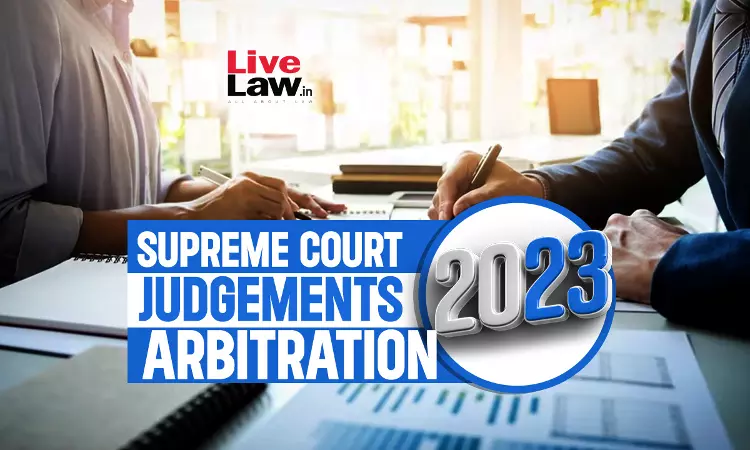- Home
- /
- Top Stories
- /
- Supreme Court Judgements On...
Supreme Court Judgements On Arbitration In 2023
Anmol Kaur Bawa
26 Dec 2023 6:25 PM IST
Starting Point Of Limitation U/ Section 34(3) Arbitration Act In Cases Of Suo Motu Correction Of Award: Supreme Court ExplainsThe Supreme Court observed that the starting point for the limitation under Section 34(3) Arbitration and Conciliation Act, in case of suo moto correction of the award, would be the date on which the correction was made and the corrected award is received by the...
Next Story



